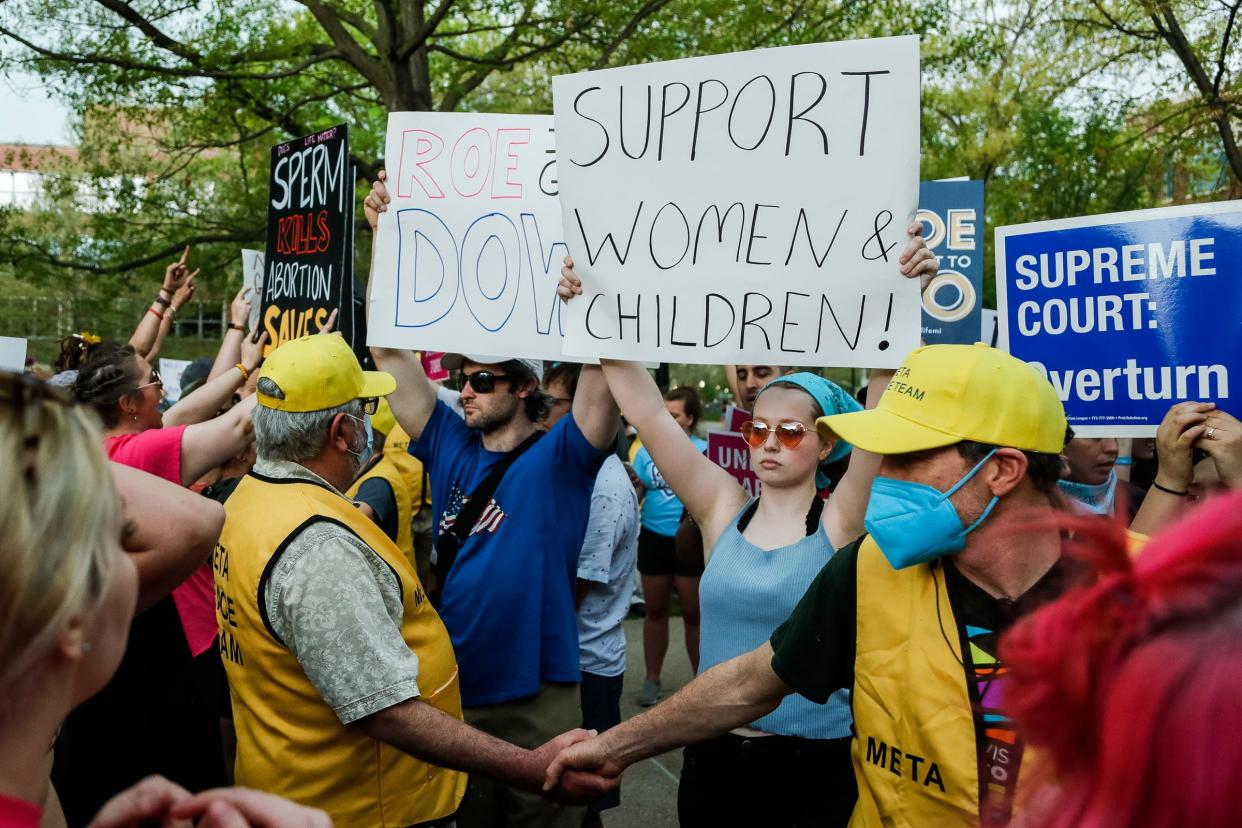Roe decision could hit low-income Michigan women hard financially: 'It's unconscionable'

The U.S. Supreme Court's decision Friday to overturn Roe v. Wade could have long-standing ripple effects on women in Michigan, disrupting their participation in the labor force and pushing them into financial trouble, experts say.
Without resources like access to quality child care and paid leave, the move to restrict abortions could hit low-income women even harder, they say.
Abortions are still legal in Michigan because of a temporary injunction blocking a state ban, but that could change if the injunction is lifted or removed.
“The decision to end access to safe, legal abortion will place yet another harsh barrier to opportunities and prosperity for millions of Michiganders and further threaten their financial stability and security,” Susan Corbin, director of the Michigan Department of Labor and Economic Opportunity, said Friday in a statement.
More: Detroit area protests, celebrations planned after Roe v. Wade overturned
More: Supreme Court overturns Roe v. Wade, leaving abortion questions for millions in Michigan
Eboni Taylor, Michigan executive director of the advocacy group Mothering Justice, said it's a "horrific day." She wonders what other protections will unravel.
"Black women, poor women, women of color are the ones that will suffer the most," she said.
She pointed to a lack child care options and protections around maternity leave.
"To force a mom through these uncertain economic times, without any real safety nets at the state or federal levels, it seems like a type of torture ... it's unconscionable," Taylor said.
Corbin also said a "lack of national paid parental leave, fully funded child care and equal pay for women" will mean that the Supreme Court decision "will have lasting, detrimental ripple effects that will hurt the health and wealth of our people and our economy.”
Affordable child care is already difficult for Michigan families to access. Detroit needs another 23,000 high-quality child care seats as of January to match demand, according to Hope Starts Here, a connector for early childhood efforts in Detroit.
Across the state, 44% of Michigan residents lived in "child care deserts," or areas with a lack of child care options, the Washington, D.C.-based Center for American Progress reported.
Some research illustrates the economic impact of abortion access and financial well-being.
A working paper published by the National Bureau of Economic Research in January said women who weren't able to get an abortion saw a "significant increase in financial distress" compared with those who did have access.
Unpaid debt that was more than a month past due more than doubled and public records related to evictions and bankruptcies increased as well, researchers found in the study of 1,000 women in 21 states.
"Access to this care was really important for women's financial independence, resiliency, well-being," said Sarah Miller, co-author of the research and an assistant professor of business economics and public policy at the University of Michigan.
Having a child affects earnings and job participation, she said.
"If there's going to be more births, more unintended pregnancies that result in birth, then that's going to be pulling people out of the labor market," Miller said.
Women were already hit hard by the economic whiplash of the COVID-19 pandemic, Taylor, of Mothering Justice, said.
"This further stunts the growth of women's participation in our economy and in the labor force," she said.
The Supreme Court's decision could further disparities between higher- and lower-income women.
"There are ways to obtain this kind of care if you can afford a plane ticket," Miller said.
Ending abortion access could increase cycles of poverty, said William Lopez, a clinical assistant professor at the University of Michigan's School of Public Health.
"Those who are pregnant, preparing to give birth, are good judges of when they're ready to economically support their infants and forcing pregnancy forces these people into an economic position that they may not be ready for or may not prefer to start at his time," Lopez said.
Kim Trent, deputy director of the Michigan Department of Labor and Economic Opportunity, who also leads the state's Poverty Task Force, said in a statement Friday that "forcing people to become parents while denying them access to resources is cruel and immoral."
Nushrat Rahman covers issues related to economic mobility for the Detroit Free Press and Bridge Detroit as a corps member with Report for America, an initiative of The GroundTruth Project. Make a tax-deductible contribution to support her work at bit.ly/freepRFA.
Contact Nushrat: nrahman@freepress.com; 313-348-7558. Follow her on Twitter: @NushratR. Sign up for Bridge Detroit's newsletter. Become a Free Press subscriber.
This article originally appeared on Detroit Free Press: Roe decision could hit low-income Michigan women hard financially

